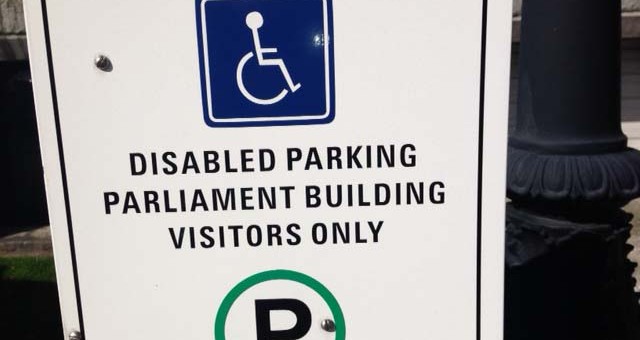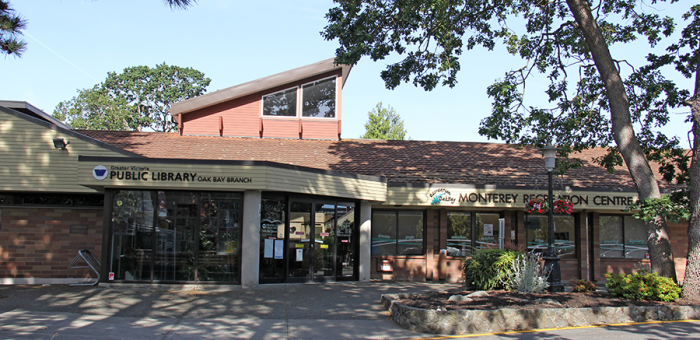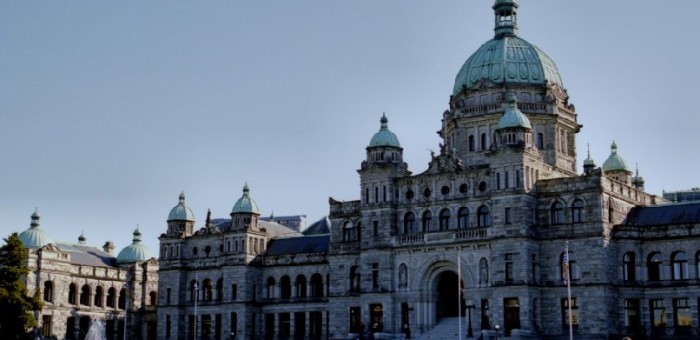Education
Reintroducing a bill to protect RDSPs and RESPs from creditors
Inspired by the discussion on Monday with Stephanie Cadieux, the MLA for Surrey South, during Private Members statements, I reintroduced a Private Members’ bill to protect Registered Disability Savings Plans (RDSPs) and Registered Education Savings Plans (RESPs) from creditors.
Registered Retirement Savings Plans (RRSPs) were first introduced federally in 1957. Legislation enabling Registered Retirement Income Funds (RRIFs) was subsequently brought forward in the late 1970’s thereby permitting seniors to withdraw their RRSP funds over time instead of all at once or through purchase of an annuity. Since that time, most provinces, including British Columbia, have recognized the importance of protecting RRSPs and RRIFs from creditors in the event of personal bankruptcy. They have passed legislation to protect RRSPs and RRIFs from being seized during bankruptcy. This provides a bankrupt individual a glimmer of hope that they will not be destitute in their old age. Here in British Columbia, such seizures are governed by the 1996 Court Order Enforcement Act.
In 2008 the Federal Government passed legislation to allow for the creation of Registered Disability Savings Plans (RDSPs). The RDSP is a federal, tax-deferred, long-term savings plan for people with disabilities who want to save for the future. Unfortunately, under the Court Order Enforcement Act, RDSPs are not listed as a registered plan in BC’s legislation and are therefore not exempt from creditor protection. Therefore, should an individual with an RDSP go into debt, their savings in the RDSP will not be protected from seizure.
The province of Alberta has already taken such measures and amended their Civil Enforcement Act to include RDSPs under Section 92.1(I): Exemption of registered plans and registered disability savings plans. Legislation has also passed in Alberta protecting RESPs from creditors.
By ensuring the financial security and well-being of those living with disabilities, we are not only providing the individuals and their loved ones with a sense of security, we are also reducing the strain on social services that incurs when individuals are unable to care for themselves. By also including RESPs in section 71.3 of the Court Order Enforcement Act, we are protecting children who, through no fault of their own, might see their education investment seized by creditors.
Below I reproduce the text and video of my introduction, as well as the accompanying media release.
Text of Introduction
A. Weaver: I move that a bill intituled the Court Order Enforcement Amendment Act, 2017, of which notice has been given in my name on the order paper, be introduced and read a first time now.
I’m pleased to be introducing a bill intituled the Court Order Enforcement Amendment Act, 2017. Inspired by a discussion on Monday, I’m reintroducing this for the second time.
Registered retirement savings plans are protected in this province from creditors in the case of personal bankruptcy. Protecting these funds provides a small safeguard that individuals undergoing bankruptcy will not be completely destitute in their old age. It’s good law that most provinces in Canada have adopted.
However, there is no protection for funds that are part of a registered education savings plan or a registered disability savings plan. These are important funds that need equal protection. Recognizing that a child should not have their education investment seized due to misfortune that befalls their parents, the Alberta government passed legislation a number of years ago protecting RESPs. It’s with this in mind that I bring this bill forward today.
This bill amends the Court Order Enforcement Act to ensure that RESPs and RDSPs are protected by law from creditors.
Mr. Speaker: The question is first reading of the bill.
Motion approved.
A. Weaver: I move that the bill be placed on the orders of the day for second reading at the next sitting of the House after today.
Video of Introduction
Media Release
Andrew Weaver introduces bill to protect RDSPs and RESPs from creditors
For immediate release
November 1, 2017
VICTORIA, B.C. – Andrew Weaver, leader of the B.C. Green Party, today introduced a bill to protect Registered Disability Savings Plans (RDSPs) and Registered Education Savings Plans (RESPs) from creditors. The bill, the Court Order Enforcement Amendment Act, 2017, was first introduced by Weaver in March 2016 and would provide RDSPs and RESPs with the same legal protection as Registered Retirement Savings Plans (RRSPs) and Registered Retirement Income Fund (RRIFs).
“A child should not have their education investment seized due to misfortune that befalls their parents,” said Weaver
“RDSPs and RESPs are important funds that British Columbians use to save for their futures. It is only fair that they have the same protection as RRSPs and RRIFs. This protection provides a glimmer of hope to those facing bankruptcy that they will not be destitute in their old age. There is no reason why British Columbians who are eligible for the disability tax credit and contribute it into RDSPs shouldn’t have that same glimmer of hope should they ever face a dire financial situation.
“I have been raising this issue in the house for three years now. Government has had plenty of time to consider it. It is time that government acts to finally give British Columbians’ RDSPs and RESPs the equal protection they deserve.”
-30-
Media contact
Jillian Oliver, Press Secretary
+1 778-650-0597 | jillian.oliver@leg.bc.ca
Supporting the introduction of free optional daycare for 4 year olds
Today one of the BC Liberal leadership candidates, Mike de Jong, MLA for Abbotsford West, announced a platform plank wherein he committed to bring in optional kindergarten for 4 year olds. I released a media statement welcoming his announcement today as it follows in the footsteps of the B.C. Green Party platform which proposed to provide free early childhood education to three and four year olds. Below I reproduce the statement.
Media Statement
Weaver: Mike de Jong’s free kindergarten for 4 year olds is an opportunity for collaborative politics based on good public policy and evidence
For immediate release
October 30, 2017
VICTORIA, B.C. – Andrew Weaver welcomed B.C. Liberal leadership candidate Mike de Jong’s campaign platform plank that would give free optional kindergarten for 4 year olds. This comes on the heels of a Conference Board of Canada report documenting the benefits of investments into Early Childhood Education on Friday. De Jong’s policy follows in the footsteps of the B.C. Green Party platform which proposed to provide free early childhood education to three and four year olds.
“I am delighted that Mr. de Jong is proposing this excellent evidence-based policy as part of his B.C. Liberal leadership campaign,” said Weaver.
“Early childhood education (ECE) yields higher returns than education at any other level. Last week’s Conference Board of Canada report found that every dollar invested in early childhood education yields $6 down the road. Providing free ECE would also help families struggling with the effects of the affordability crisis. This is good public policy that puts people first – plain and simple.
“What’s most exciting is that this demonstrates the enormous opportunity to work together across party lines in order to deliver for British Columbians. We all want the same thing: to ensure a high quality of life for the people we represent. When we focus on common ground, there is no limit to what we can accomplish.
“For far too long, politics in British Columbia has been about power, with opposition parties first instinct to take partisan shots at government with the sole aim of getting back into power themselves. This status quo leads to divisive, inflammatory and unproductive politics, much like we have witnessed south of the border. There is no better opportunity to do things differently than in a minority government. I welcome the opportunity to work with Mr. de Jong, and all members of the B.C. Liberal caucus, on this issue and other ways in which we can collaborate to make good, evidence-based policies a reality for British Columbians.”
-30-
Media contact
Jillian Oliver, Press Secretary
+1 778-650-0597 | jillian.oliver@leg.bc.ca
Reintroducing a bill to reform university governance in British Columbia
Today in the legislature I reintroduced a private member’s bill now entitled Bill M204 —University Amendment Act, 2017. The purpose of this bill is to halt the creeping government interference in university governance, an issue I have previously raised.
I provided a detailed rationale for the bill l when I first introduced it in February 2017.
Below I reproduce the video and text of today’s introduction along with the accompanying media release.
Video of Introduction
Text of Introduction
A. Weaver: I move that a bill intituled the University Amendment Act, 2017, of which notice has been given in my name, be introduced and read a first time now.
I’m pleased to be introducing a bill, intituled the University Amendment Act. Universities in this province of British Columbia serve a key role in an economy that is increasingly driven by knowledge, information and ideas. Academic freedom is a fundamental tenet for a culture of learning to succeed and a key part of academic freedom is found in the right to participate in the universities governance. While the role of a board of governors is essential to a university, the governance of a university must also be independent.
It is with this in mind that I bring this bill forward today. This bill amends the University Act to ensure that appointees from the Lieutenant-Governor-in-Council cannot unilaterally set the tone and direction of a university board through having a majority of votes and that the university boards cannot unilaterally appoint a chancellor for their university.
This act also amends the University Act to change the composition — not the powers — of the senate for special purpose teaching universities.
The current composition of the senates of special purpose teaching universities gives the administration of these universities the majority vote. This harms the ability of the senate to keep the academic autonomy of the university at arm’s length from government.
This bill will bring British Columbia into the same university governance standards employed by much of the rest of Canada.
Motion approved.
A. Weaver: I move that the bill be placed on the orders of the day for second reading at the next sitting of the House after today.
Bill M204, University Amendment Act, 2017, introduced, read a first time and ordered to be placed on orders of the day for second reading at the next sitting of the House after today.
Media Release
Andrew Weaver introduces bill to protect the independence of universities
For Immediate Release
October 25, 2017
VICTORIA, B.C. – Andrew Weaver, leader of the B.C. Green Party, today introduced a Private Member’s Bill that would protect the independence of B.C. university governance. Weaver previously introduced this bill in February 2017, as well as similar legislation aimed at addressing the issue of university governance in 2016. The legislation would bring B.C.’s rules in line with the majority of other Canadian jurisdictions.
“Our universities must be a place where innovation and creativity are allowed to flourish,” said Weaver.
“In B.C., there has been a worrying trend of creeping political interference in university governance. The potential for government to drive a top-down imposition of its ideology in our academic institutions is absolutely unacceptable in a free democracy. This bill would ensure that B.C.’s university boards remain autonomous so that critical thinking and the untethered pursuit of knowledge can drive their work.”
This Bill amends the University Act to ensure that appointees from the Lieutenant Governor in Council cannot unilaterally set the tone and direction of a university board through having a majority of votes, and that university boards cannot unilaterally appoint a Chancellor for their university.
It also amends the University Act to change the composition of the Senate for special purpose teaching universities. As it currently stands, it is possible for the administration (instead of faculty) of these universities to have the majority vote which harms the ability of the senate to keep the academic autonomy of the university at arm’s length from government.
-30-
Media contact
Jillian Oliver, Press Secretary
+1 778-650-0597 | jillian.oliver@leg.bc.ca
Provincial funding for Public Libraries
Today in Committee A (which sits simultaneously with the main Chamber), Education Budget Estimates were being addressed. I took the opportunity to ask the Education Minister about funding for public libraries.
As you will see from the exchange (reproduced in text and video below), the BC Liberals cut the budget for public libraries by 20% in 2009. Since 2010, public libraries have received about $14 million from the province on an annual basis. There has been no cost of living adjustment since that time and increasing costs have been downloaded to local governments.
What’s worse is that historically there was a line item in the Budget that noted funding specifically set aside for public libraries. That line item recently disappeared and now Provincial funding is buried within the general education budget.
I was very pleased with the thoughtful responses I received from the Minister of Education.
Video of Exchange
Text of Exchange
A. Weaver: I’m going to switch topics slightly. Oak Bay–Gordon Head is not pressing for the building of new schools. We have thanked the previous government, actually, for the new high school that was built in Oak Bay quite recently.
I’d like to ask a couple of questions on public libraries, if I may. I don’t know whether that requires staff to change. It’ll be a few questions on public libraries. I do apologize for not providing my questions in advance, but it’s been crazy today. I’m actually supposed to be speaking right now in the main House at the same time, but clearly, I’m not. Can I proceed? Thank you.
A number of years ago, back in 2010, public libraries lost about 20 percent of their funds. Public libraries were cut to $14 million provincewide, and it’s remained flat ever since. In previous budgets, there used to be an actual line item that said “Public library funding, $14 million.” Now that line item no longer exists at all.
I’m concerned, in light of the fact that public libraries play such an important role in any democratic institution, that this line item is hidden somewhere, and it may be subject to future cuts. I’m trying to get a sense from the minister whether or not public libraries are protected in this budget update, and I’ll follow up with a couple of questions after that.
Hon. R. Fleming: I thank the member for his question. We haven’t gotten to libraries yet in this set of estimates. He may know that there has been some advocates for library funding for many, many years who have passed resolutions at the Union of B.C. Municipalities and other places specifically asking the library funding to come out of the Ministry of Education.
After I was sworn in, I endeavoured to meet with all of the four major library associations in the province to ask them if that historic position was still, indeed, the case. I’m happy to say they are giving us a chance, as a ministry, to do more with public libraries.
I certainly understand how critically important they are in communities. We’ve heard that loud and clear. I had at least a dozen or a dozen and a half meetings with mayors and councillors at the recent UBCM conference specifically about libraries and how important they are in all communities but rural communities especially.
Their utilization rates are growing all the time. There are a couple of communities — Trail is one that comes to mind — where they’re investing significant capital dollars in state-of-the-art library facilities. So there are good things happening out there.
In specific reference to the member’s question about the cut that the previous government brought in in 2008, when library funding was reduced from $17 million to $14 million, and where it’s at currently. In this budget update, the $14 million is protected. I’ve made that clear to anybody that is working in local government or in the library sector that that is the case.
We’re having some interesting conversations about what a new vision might look like for libraries in B.C. As the member understands, this is the budget update, so it was not a lengthy opportunity to engage in budget-making, but to his question, specifically, the $14 million in funding is protected.
A. Weaver: Thank you, minister. There will be a lot of people very happy to hear that answer on record.
I do recognize, and I have some sympathy, that public libraries are coming out of the Ministry of Education. It’s a difficult jurisdiction for whether it should be advanced ed. You could make the argument that it could be advanced ed, or it could, who knows, span many ministries.
I think the key aspect, though, is the shared importance of protecting these for public good. These are a public resource that is critical to the betterment of society. Many of the municipalities are concerned, as the minister knows, because of the fact that, since the funds have been stalled are at $14 million with no cost of living increase, costs have been downloaded onto municipalities.
The concern is that some of their budgets are going to getting some shocks, pretty soon, when the new public library budget comes in.
My question to the minister. I know this is a budget update. It’s if the minister is thinking — whether it be through his ministry or other ministries — about, perhaps, actually putting the libraries into a base budget somewhere and giving them the opportunity to grow through the provincial funding, whether it be through cost of living or other. Because it’s very difficult to make ends meet with funding that has been frozen for quite a number of years.
Hon. R. Fleming: Thank you to the member for that follow-up question. There has been some contemplation about where libraries might best fit in the structures of government. I think there’s a strong case to be made that the Ministry of Education is the right place for it. We have terrific partnerships all across British Columbia with local libraries. We’ve been asked to look at whether broadband access that we provide to rural and remote schools might be possible for libraries to benefit from. Lots of exciting discussions and literacy programs that happen between our local libraries and school districts.
Having said that, what the issue I think he’s getting at here is, is the frustration from, essentially, the erosion of library funding over the last ten years, nearly, since that cut was introduced to library funding. Then it was frozen against inflation — a bit of a double hit. It has led to a decline in the overall percentage share of provincial contribution to libraries. It’s meant that local governments have faced tax pressure on their ratepayers to make up for that state of affairs.
I heard mayors loud and clear and have been lobbied directly by a lot of city councillors, as well, and regional district directors to look at exactly that. I can say it’s a conversation that’s happening within government. I did not fail to note that the Union of B.C. Municipalities passed a resolution as well.
I think I will just conclude by thanking the member for raising it. It’s an important issue, and I think there’s massive potential for libraries to provide additional life-long learning opportunities, connection to employment and just general resilience and wellbeing of individuals and the communities that they serve.
Apply for 2017 BC Youth Parliament
The 89th British Columbia Youth Parliament will hold its parliamentary session in Victoria at the Provincial Legislative Chambers from December 27 to 31, 2017. The Youth Parliament is a province-wide non-partisan organization for young people ages 16 to 21. It teaches citizenship skills through participation in the December parliamentary session and in community service activities throughout the year. Youth Parliament is a one year commitment.
The BC Youth Parliament is non-partisan and applicants need only be interested in learning more about the parliamentary process and in serving their community.
The application is available here, along with an informational brochure and poster.
All applications must be received by October 24, 2017. Selected applicants will be notified in early November.








